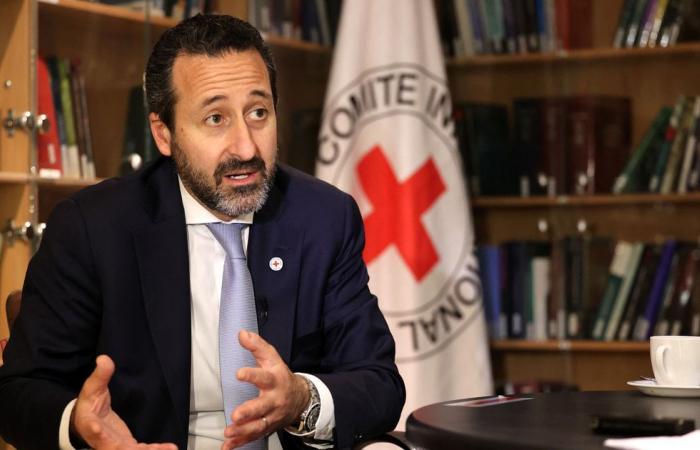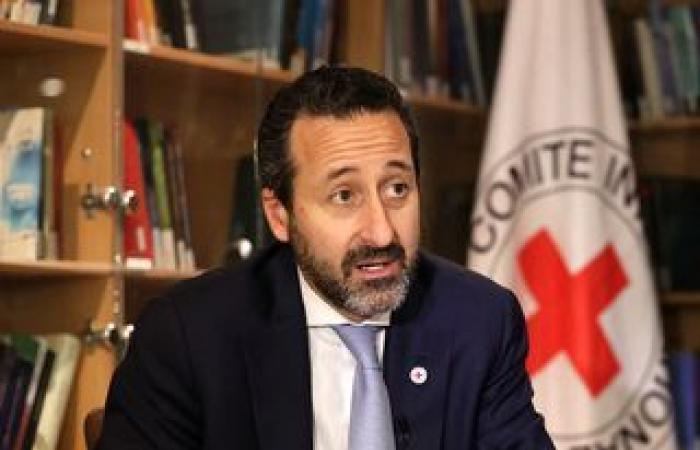Increasing needs and decreasing donations: the International Committee of the Red Cross (ICRC) is preparing to face a serious liquidity crisis. On the waves of the RTS, its director Robert Mardini launches a cry of alarm. Without a rapid influx of additional donations into the organization’s coffers, he does not rule out budget cuts in operations and jobs, particularly at the Geneva headquarters.
RTSinfo: What is the financial situation of the ICRC?
Robert Mardini: Today we are sounding the alarm for the communities that are hardest hit by the combined effects of conflict, climate change, the aftermath of Covid-19 and the wider consequences of the conflict between Russia and Ukraine. . These communities can no longer make ends meet and our action must be increased to help meet their basic needs. We could face underfunding of up to 700 million francs at the end of the year, if our donors are not there.
Ukraine is the only line in the ICRC budget to be in the green. No taboo: does aid to Ukraine cannibalize the other ICRC budget lines?
The majority of contexts are underfunded. If we take the ten largest ICRC operations (Ukraine, Afghanistan, Syria, Yemen, South Sudan, Somalia, Iraq, Democratic Republic of Congo, Ethiopia and Nigeria) , apart from Ukraine which has a positive outlook, all other contexts are underfunded. The communities affected by these crises find themselves forgotten by the international community, which is not aware of the issues. There are obviously fewer donations for humanitarian aid in general. This trend is now accentuated with the conflict between Russia and Ukraine.
Last year, prices of basic necessities increased by 159% in South Sudan, 156% in Lebanon and 102% in Sudan
Are there other factors?
There is also the cost of inflation. Last year, prices of basic necessities increased by 159% in South Sudan, 156% in Lebanon and 102% in Sudan. For organizations like the ICRC, humanitarian aid, logistics and fuel cost much more. There is therefore a combined effect which is really very unfavorable for the neutral, impartial and independent humanitarian action that we carry out.
Doesn’t the ICRC have eyes a little bigger than its stomach?
Apart from the conflict between Russia and Ukraine, there are more than 100 other armed conflicts where the ICRC is present. Because it is our duty, our mandate. Unfortunately, these conflicts, for the most part, have no prospect of resolution in sight. Each year, these conflicts generate more suffering, more people killed, more people injured, more communities that are on the threshold of poverty and that have no prospects. Of course, humanitarian aid will not solve all these problems. What is needed is political leadership to end these conflicts. This is why the ICRC cannot ethically withdraw from places like the Central African Republic, Sudan or Yemen, where humanitarian needs unfortunately continue to increase.
Are there places where ICRC operations have become a little less essential?
The appeal that the ICRC launched last year is a very realistic appeal that already incorporates a large number of prioritizations and difficult choices. Obviously, as the weeks go by, we will see. The next few months will be decisive. We will have to, if the donors are not there, revise our ambitions downwards.
The ambition is really to maintain our staff and our programs. That’s why we’re ringing this alarm bell now, early in the year, so we can see the response from our donors.
Do you foresee consequences on employment at the headquarters in Switzerland, in Geneva?
For the moment, nothing is excluded. The ambition is really to maintain our staff and our programs. That’s why we’re ringing this alarm bell now, early in the year, so we can see the response from our donors. And then, based on that response, we’ll do what we need to do to ensure a financial balance.
Is the Swiss contribution to the ICRC sufficient?
Switzerland is a major donor to the ICRC. Moreover, we are very grateful for this long-standing, regular, predictable and flexible support. Today, given these increasing humanitarian needs, our only request to all our donors is to make an extra effort.
Interview by Benjamin Luis/vajo



